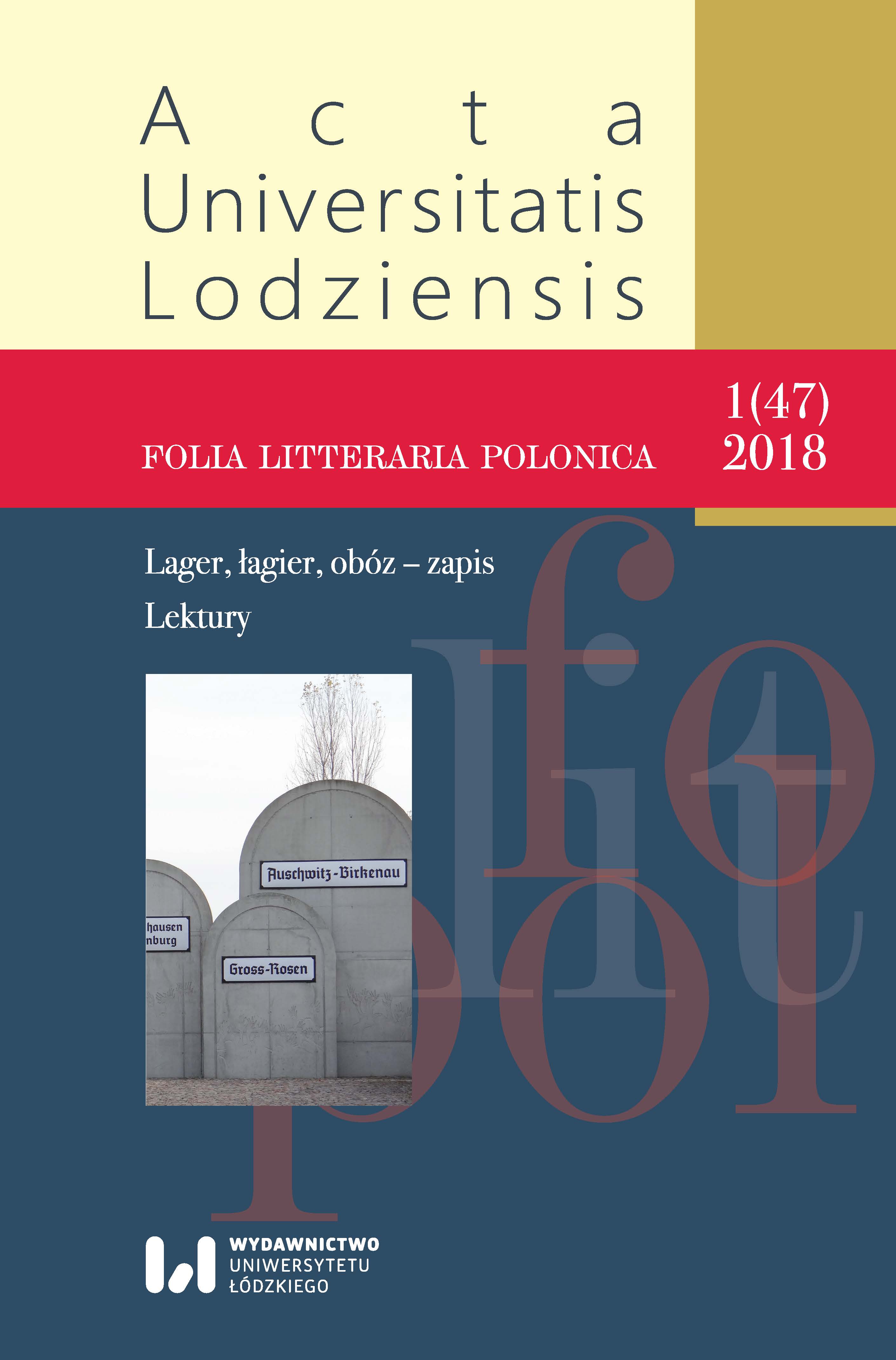Nie ma takiej wiedzy, która jest ostateczna. Każda stanowi przedsionek prowadzący do nowych obszarów niewiedzy. Götz i Meyer Davida Albahariego
There is no such a thing as ultimate knowledge. Each one constitutes an entryway to the new fields of ignorance. David Albahari’s Götz and Meyer
Author(s): Sabina GiergielSubject(s): Philology
Published by: Wydawnictwo Uniwersytetu Łódzkiego
Keywords: David Albahari; Serbia; Holocaust; concentration camp Staro sajmište; memory; literature; history
Summary/Abstract: This article’s aim is to analyze David Albahari’s Götz and Meyer as the only Serbian literary text whose main theme is the extermination of the native Jews. The recurring key-word of the analysis is the notion of void, which appears both on the plot level and a more metaphorical one that connotes a less perceptible meaning of Albahari’s prose which can be summarized as a conviction about the insufficient memory of the Holocaust in Serbia. The main aim of this paper is to demonstrate what method Albahari employs to build his story. Consequently, juxtaposing history (ostensibly objective, linked with the order of reason) with fiction proves to be here of the utmost importance. It demonstrates that this text – indirectly – inscribes itself in the debate on the possibilities of expressing Holocaust.
Journal: Acta Universitatis Lodziensis. Folia Litteraria Polonica
- Issue Year: 47/2018
- Issue No: 1
- Page Range: 159-178
- Page Count: 20
- Language: Polish

